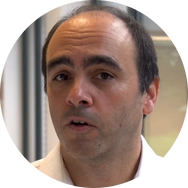
Kemin and Poultry World invite you to the 2025 Respiratory Integrity Forum, where global experts will discuss integrated risk management against emerging respiratory challenges compromising welfare and profitability in your poultry operation.
On May 8 at 13:00 CEST, our experts will share key insights into infectious bronchitis.
Register now to join live for free or watch the webinar later on demand!
Key Takeaways:
- Infectious Bronchitis Virus – Risk factors & epidemiological updates.
- Infectious Bronchitis Control – Best practices with vaccination.
- Infectious Bronchitis – Field results building respiratory integrity with Kemin vaccines.
Infectious Bronchitis virus (IBV) is a major respiratory virus which causes chronic disorders leading to financial losses in the poultry industry worldwide. IBV infection of the oviduct at a very young age can lead to permanent damage and, in hens, can significantly compromise the production period. IBV can also be nephropathogenic, thus causing acute nephritis, urolithiasis and mortality, especially in young birds. The error-prone viral polymerase and recombination mechanisms lead to a diverse viral population with multiple genotypes, serotypes, pathotypes and protectotypes. This antigenic complexity significantly complicates control and mitigation strategies based on vigilance in biosecurity and the deployment of suitable vaccination. Besides the IBV classical strain (Massachusetts), there are dozens of variant strains, such as the GI-23 lineage strains (countries in red), which have been spreading to multiple geographies worldwide (Fig. 1)

When it comes to vaccination, if the main challenge pressure comes from “variant” strains, the primer vaccine should contain a variant antigen (e.g. VAR 2) and the booster immunization should contain the classical strain (Fig. 2). The success of your vaccination program is incredibly valuable to Kemin. Join this global forum to learn more about the product profile and field results obtained with our respiratory vaccines.

References:
- https://www.woah.org/en/disease/avian-infectious-bronchitis/
- Yehia et al (2023). Common viral and bacterial avian respiratory infections: an updated review. Poult Sci. 2023 May; 102(5): 102553. Published online 2023 Feb 1. doi: 10.1016/j.psj.2023.102553
- Houta et al (2021). The emergence, evolution and spread of infectious bronchitis virus genotype GI-23. Archives of Virology (2021) 1669–26.
- Falchieri et al (2024). Infectious bronchitis virus: an overview of the “chicken coronavirus”. J Med Microbiol. 2024 May 21;73(5):001828. doi: 10.1099/jmm.0.001828.
Speakers

Prof. Mattia Cecchinato
Department of Animal Medicine
University of Padua, ITALY
Presentation subject:
Best vaccination practices to manage the risk against emerging IBV variants in commercial poultry
Dr. Mattia Cecchinato is Full Professor at University of Padua, Italy. Dr. Cecchinato is Doctor in Philosophy, (PhD) in Epidemiology and Zoonosis Control from University of Bologna; Doctor in Veterinary Medicine (DVM) from University of Padua and member of the European College of Poultry Veterinary Science. Besides teaching, he supports the European poultry industry publishing outstanding research addressing the prevention and control of Infectious Bronchitis virus (IBV) and Avian Metapneumovirus (AMPV).

Dr. Ricardo Neto
Regional Technical Service Manager
Kemin Biologics, PORTUGAL
Presentation subject:
Kemin Expertise for Effective IBV Control in flocks under field conditions
Ricardo Neto is a Doctor of Veterinary Medicine, graduated from UTAD in Portugal. Dr. Neto has more than 16 years of experience in the field of veterinary science for swine and poultry, specialising in respiratory viruses. Throughout his career, Dr. Neto held local technical roles in the UK and Ireland, followed by European and global positions. His expertise includes pathogen surveillance programs and risk management against emerging animal diseases embracing vaccines technologies as key intervention.
Partner


